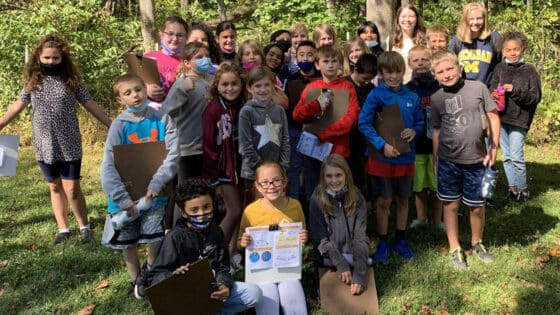Carlsen, W.S., E. Goehring, and S.C. Kerlin. 2014. Pages 81–89 in V.C.H. Tong (editor). Geoscience Research and Outreach: Schools and Public Engagement, volume 21 in Innovations in Science Education and Technology series. Springer Netherlands, Dordrecht.
doi: 10.1007/978-94-007-6943-4_6
Abstract
Science education reform efforts have challenged scientists to model inquiry practices for precollege students through student-scientist interactions (SSIs). Given the limited availability of scientists, their varying experience with effective pedagogy, the widespread distribution of schools, and the numbers of students potentially involved, however, questions abound concerning how best to structure these interactions. Our international environmental education project has developed online forums to support SSIs, making use of web and database technology to facilitate communication between students and scientists. We have addressed the question, “How best to do this?” scientifically, combining program evaluation with randomized trials explicitly testing the effects of SSIs on student outcomes.
FLEXE forums showcase scientific practices and habits of mind through facilitated interaction between students and scientists. Through the forums, students “meet” working oceanographers and learn about their research and the environments in which they work. Scientists provide students with intriguing datasets and challenge them to analyze and interpret data through guiding questions. Students submit their analyses to the forums, and scientists provide feedback and connect instructional activities with real-life practice, showcasing their activities in the field.
FLEXE is a partnership between Ridge 2000, the GLOBE Program, and Penn State University. FLEXE forums have been pilot tested with approximately 3,500 students from Australia, Costa Rica, England, Germany, Thailand, and the USA. Data from students and teachers show that engagement with scientists in personalized SSI interactions can be motivating, educational, and scalable.



